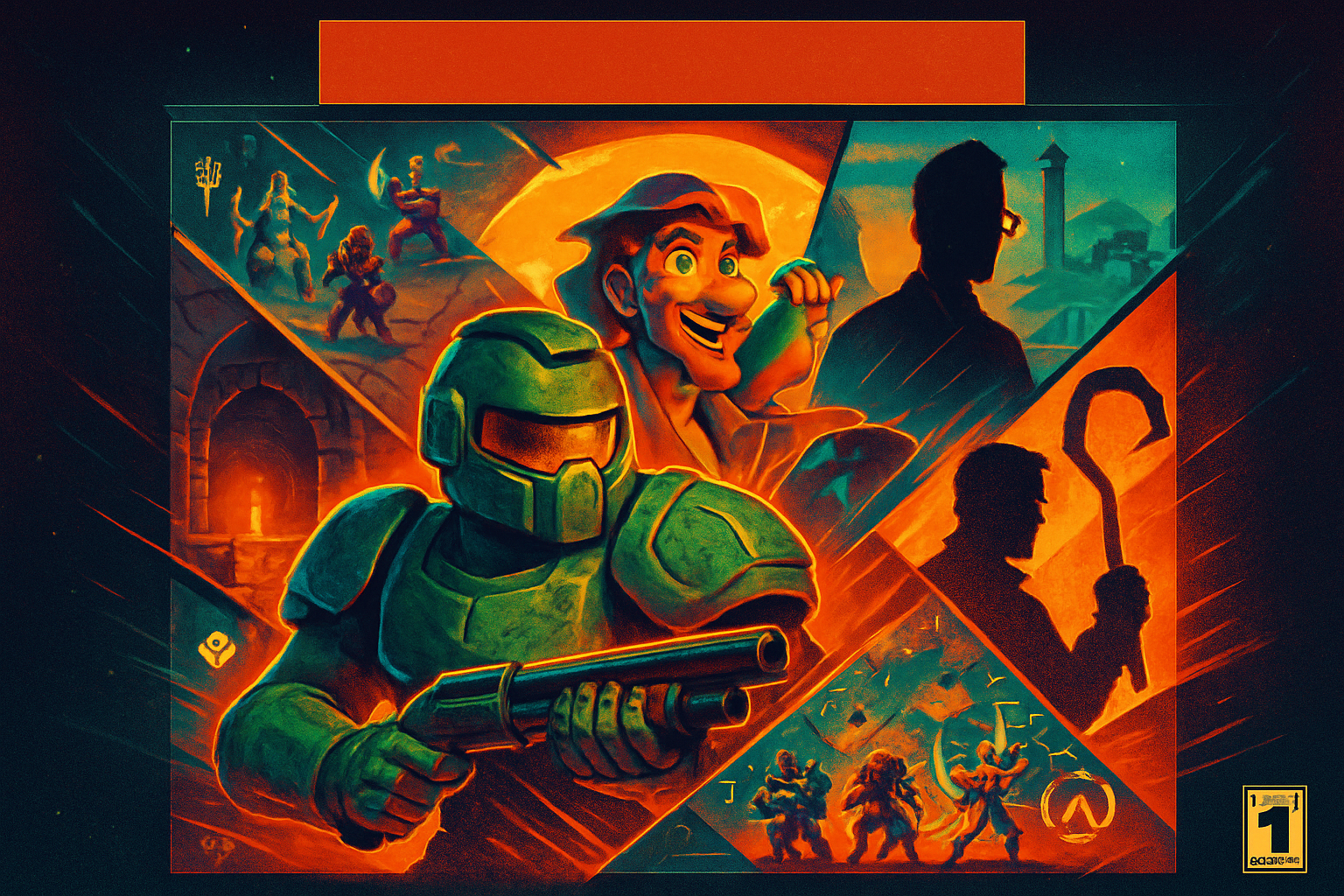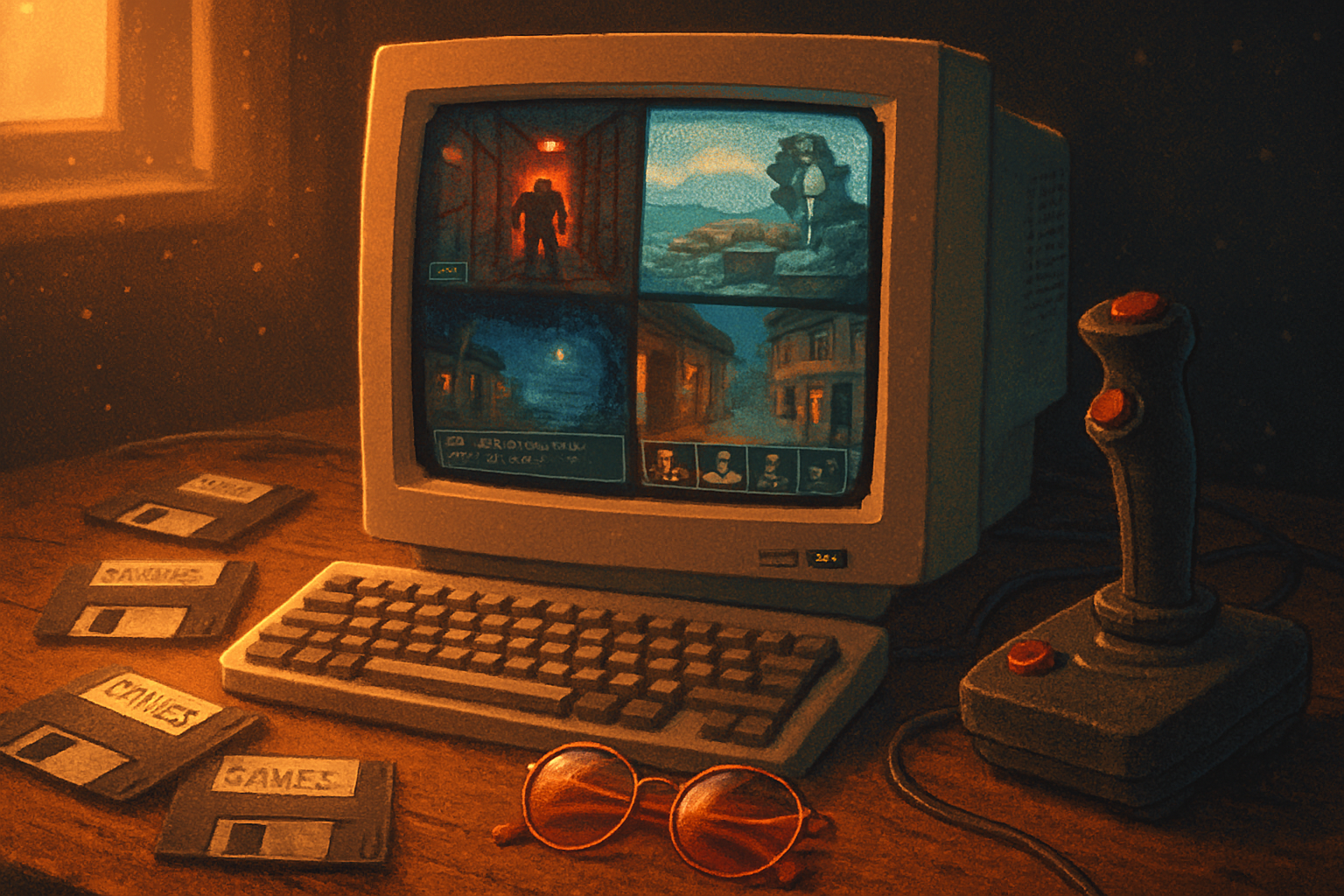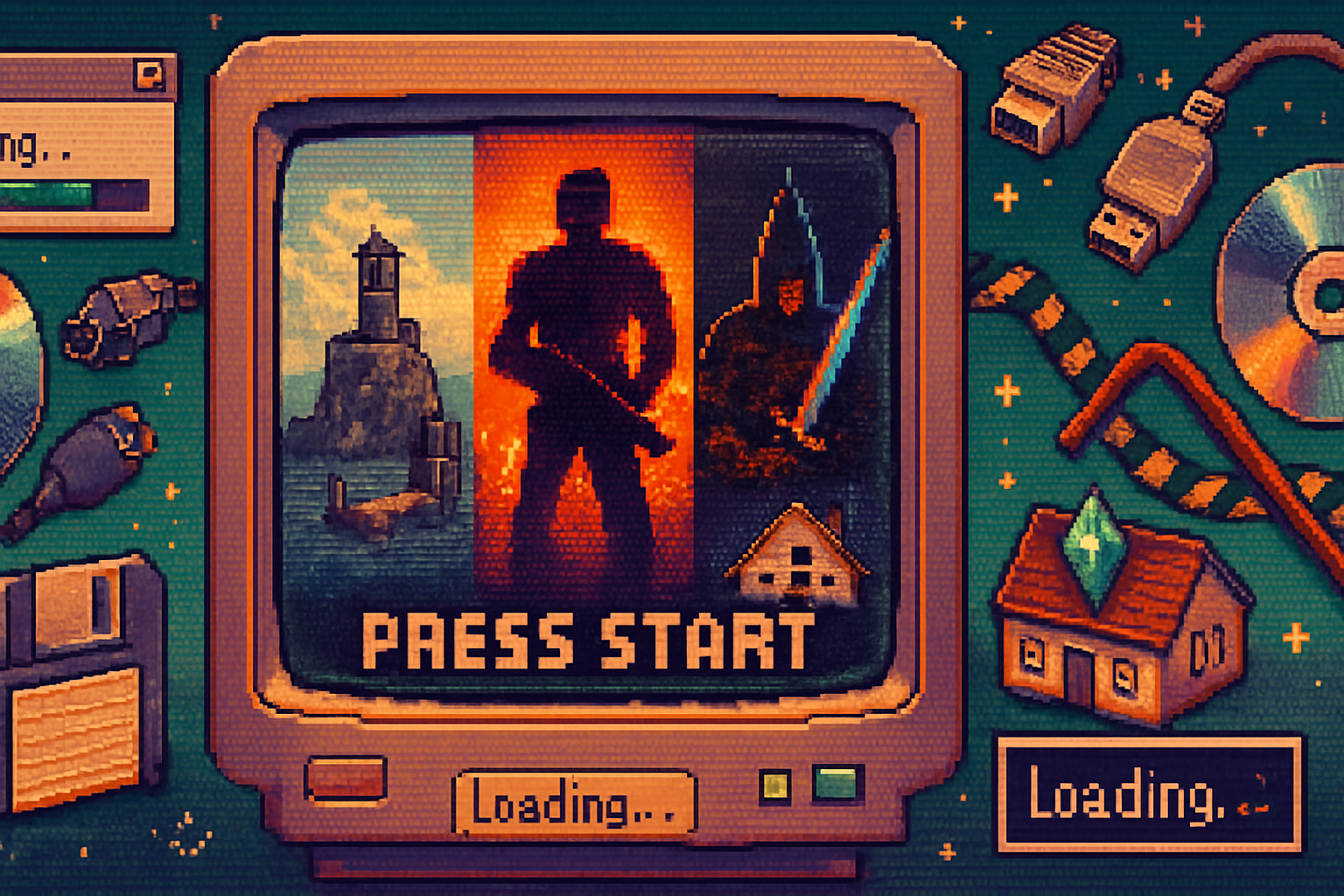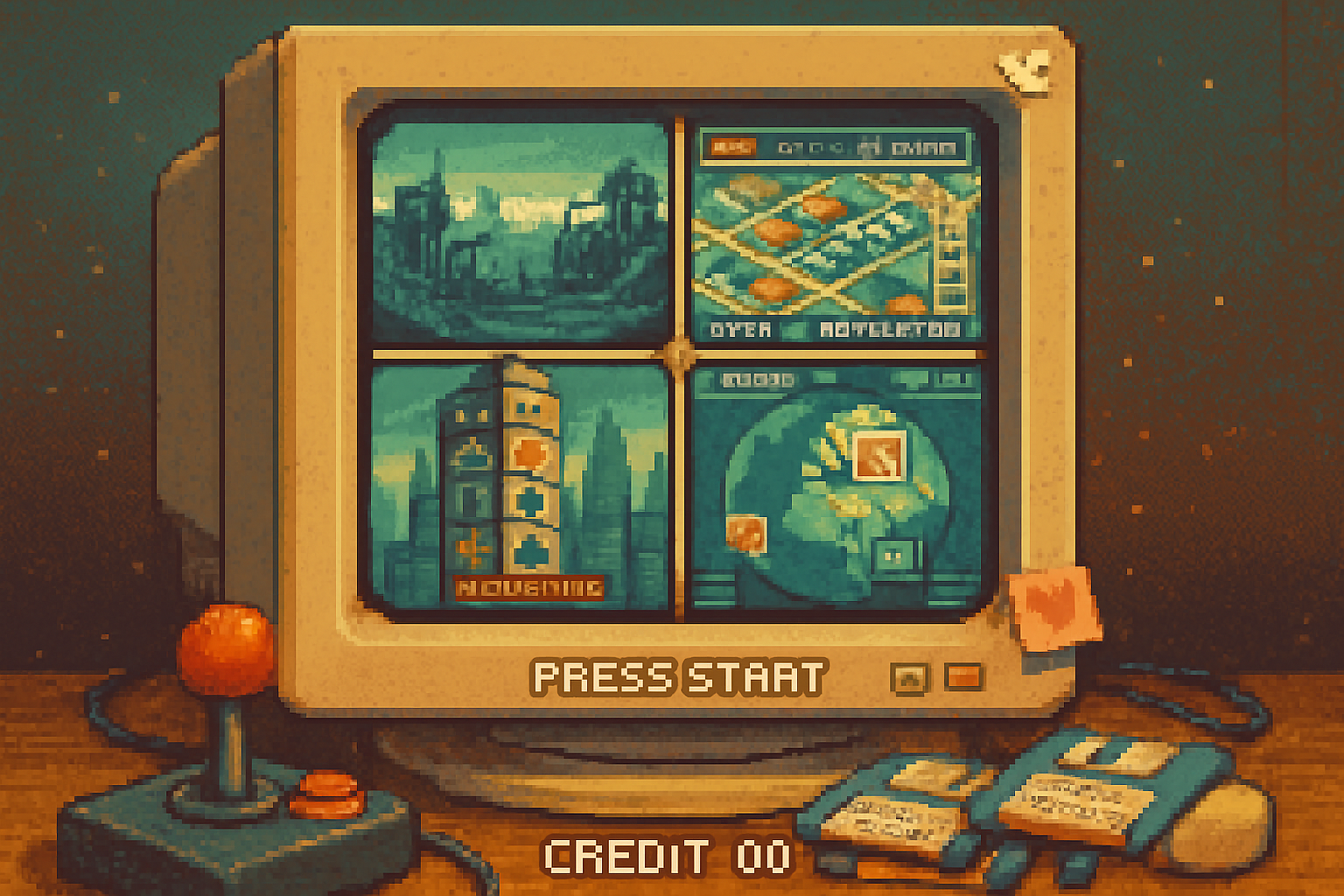· 7 min read
Rediscovering the Classics: The 10 Best Retro PC Games Everyone Should Play
A deep dive into ten formative PC games - why they mattered, how they played, and how to experience them today. From the corridors of early shooters to the sprawling maps of turn-based empires, these classics shaped modern gaming and still teach us design lessons worth revisiting.
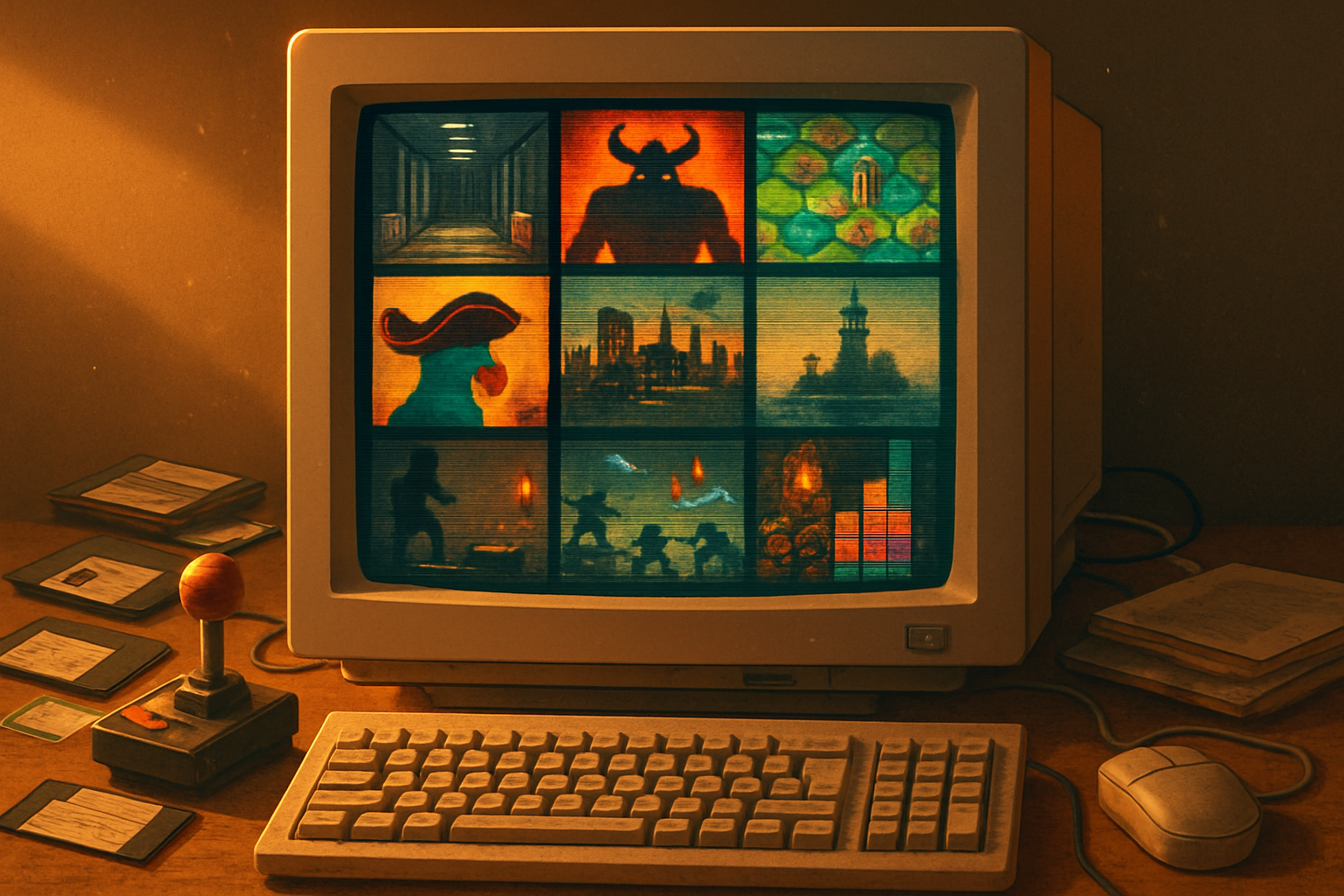
Introduction
The history of PC gaming is packed with moments of invention, stubborn creativity, and games that rewired what players expected from interactive entertainment. Whether you grew up with a dial-up modem and a CRT or you’re discovering these titles for the first time, the classics offer more than nostalgia: they reveal the foundations of genres, bold technical workarounds, and storytelling that still resonates.
Below are ten essential retro PC games - each with a short history, what made the gameplay special, their cultural or technical impact, and easy ways to play them today.
- Wolfenstein 3D (1992)
- What it is - Often credited as the grandfather of the modern first-person shooter, id Software’s Wolfenstein 3D put players in fast, corridor-based combat against enemy soldiers and bosses.
- Why it mattered - It introduced many players to first-person navigation with real-time shooting, responsive controls, and a strong emphasis on speed and exploration for its time.
- Gameplay mechanics - Grid-based levels disguised as free movement, simple AI, fast pickups (health, ammo), secret rooms - design choices that encouraged quick reflexes and map memorization.
- Legacy & relevance - Its influence is seen in almost every FPS that followed. It proved the format could be thrilling on home PCs.
- How to play now - Official re-releases and source ports are available via platforms like
- DOOM (1993)
- What it is - A landmark FPS from id Software that pushed 3D-ish rendering, modding, and multiplayer into the mainstream.
- Why it mattered - DOOM popularized fast-paced action, level design with verticality and secrets, and an active modding community that kept it alive for decades.
- Gameplay mechanics - Weapon variety, keycards/locked doors, monster arenas, and level hazards created tense, skill-based combat.
- Legacy & relevance - DOOM’s approach to enemy and level balance is still a teaching example in FPS design; its modding culture presaged today’s user-created content ecosystems.
- How to play now - Official ports and classic collections on
- Myst (1993)
- What it is - A graphically rich, atmospheric puzzle-adventure where players explore a series of linked islands solving environmental puzzles.
- Why it mattered - Myst showed that narrative and atmosphere could be the core of a game’s appeal. Its pre-rendered visuals and soundscapes were a showcase for multimedia-capable PCs.
- Gameplay mechanics - Observation-based puzzles, inventory use, and non-linear exploration with minimal hand-holding.
- Legacy & relevance - Myst influenced adventure design, environmental storytelling, and the idea that “games can be meditative experiences.” Modern walking simulators owe a debt to it.
- How to play now - Remasters and re-releases are available on platforms like
- The Secret of Monkey Island (1990)
- What it is - A witty point-and-click adventure from LucasArts balancing clever puzzles and strong comedic writing.
- Why it mattered - It raised the bar for humor and storytelling in games, with memorable characters, sharp dialogue, and puzzles that (mostly) made narrative sense.
- Gameplay mechanics - Inventory-based puzzle solving, dialogue trees (humor as a core mechanic), and exploration of quirky locales.
- Legacy & relevance - Its writing and tone influenced narrative-driven games and established LucasArts as a leader in adventure games.
- How to play now - Remastered editions are on
- SimCity (1989)
- What it is - Will Wright’s city-building sandbox where you plan zones, manage budgets, and respond to disasters.
- Why it mattered - SimCity pioneered the idea of systemic simulation-players create scenarios rather than follow linear goals.
- Gameplay mechanics - Zoning, taxation, utility management, and emergent storytelling based on simulation rules.
- Legacy & relevance - Its simulation-first philosophy shaped countless ‘tycoon’ and management games and influenced how designers approach systemic depth and player expression.
- How to play now - Classic versions are available on
- Sid Meier’s Civilization (1991)
- What it is - A turn-based 4X (explore, expand, exploit, exterminate) strategy game where you guide a civilization from the ancient era to the modern age.
- Why it mattered - Civilization made empire-building accessible and addictive, combining long-term strategy with emergent historical narratives.
- Gameplay mechanics - Tech trees, diplomacy, city management, unit movement across a hex-like grid (square grid), and multiple victory paths.
- Legacy & relevance - The Civilization series defined 4X design, teaching pacing, trade-offs, and the satisfaction of slow-burn strategy.
- How to play now - The original and many sequels are on
- Prince of Persia (1989)
- What it is - Jordan Mechner’s cinematic platformer known for fluid, rotoscoped animation and tense time-limited runs.
- Why it mattered - It married precise platforming with animation realism, inspiring future cinematic platformers and action games.
- Gameplay mechanics - Tight movement, realistic jumps and climbs, and a timed race to save the princess - every pixel counted.
- Legacy & relevance - Its blend of challenge and cinematic presentation influenced games that prioritize movement fidelity and atmosphere.
- How to play now - Classic ports and re-releases are available on retro compilations and digital storefronts.
- StarCraft (1998)
- What it is - Blizzard’s definitive real-time strategy title featuring three asymmetrical playable factions and a tight competitive balance.
- Why it mattered - StarCraft became a cultural phenomenon (especially in South Korea), elevating RTS esports and showing how lore plus polished gameplay can create long-term engagement.
- Gameplay mechanics - Fast-paced economy micromanagement, asymmetrical faction design, unit counters and tactics that reward quick thinking.
- Legacy & relevance - Its esports pedigree and balanced design make it a case study in competitive game design.
- How to play now - The original is available alongside the remastered edition on
- Baldur’s Gate (1998)
- What it is - A party-based CRPG using the Dungeons & Dragons ruleset, notable for branching narrative and complex character systems.
- Why it mattered - It revitalized western CRPGs, demonstrating how strong writing, party interplay, and tactical combat create deep role-playing experiences.
- Gameplay mechanics - Real-time-with-pause combat, party management, long-form quests, and character development tied to player choice.
- Legacy & relevance - Modern RPGs borrow its party-based storytelling and emphasis on consequence-driven quests; enhanced editions make it accessible today.
- How to play now - Look for the Enhanced Edition on
- Tetris (various early PC ports)
- What it is - A deceptively simple falling-block puzzle game that became an international sensation.
- Why it mattered - Tetris proved that pure gameplay mechanics can deliver deep, endless engagement without complex narratives or graphics.
- Gameplay mechanics - Spatial reasoning under pressure, pattern recognition, and incremental speed increases creating flow states.
- Legacy & relevance - Tetris is a design masterclass in elegance and pacing; its mechanics inform design across casual and hardcore games.
- How to play now - Many official and indie ports exist across PC storefronts; classic versions and tributes are widely available.
How to Play These Classics Today
- Digital storefronts - Sites like GOG and Steam host restored or bundled classics with modern compatibility patches. Search each title there first.
- Emulation & DOSBox - For DOS-era games,
- Source ports & community patches - For titles like DOOM or Wolfenstein, community source ports can add modern resolutions, smoother controls, and quality-of-life fixes.
- Remasters & rereleases - Many of these classics have official remasters (Myst, StarCraft Remastered, Monkey Island Special Edition, etc.) that preserve original content with visual/audio upgrades.
Why replaying retro games matters
- Design clarity - Older games often distilled mechanics down to core interactions. Studying them reveals how each mechanic serves a purpose.
- Historical perspective - Playing classics shows how genres evolved and which ideas persisted, mutated, or were abandoned.
- Creativity under constraints - Developers worked with limited memory, art, and CPU power - constraints that foster clever solutions still useful for designers.
- Joy and perspective - Beyond analysis, these games are just fun. They can surprise players used to modern production values with clever moments of gameplay and writing.
Final thoughts
The ten games above are just a starting point. PC gaming’s early decades are full of experiments - some rough around the edges, others timeless - that shaped the games we play today. Whether you’re a developer, a longtime player, or a newcomer, revisiting these classics can teach design lessons, spark nostalgia, and provide plain, unadulterated fun.
Selected references and further reading
- Wolfenstein 3D - https://en.wikipedia.org/wiki/Wolfenstein_3D
- Doom (1993) - https://en.wikipedia.org/wiki/Doom_(1993_video_game)
- Myst - https://en.wikipedia.org/wiki/Myst
- The Secret of Monkey Island - https://en.wikipedia.org/wiki/The_Secret_of_Monkey_Island
- SimCity (1989) - https://en.wikipedia.org/wiki/SimCity
- Sid Meier’s Civilization - https://en.wikipedia.org/wiki/Sid_Meier%27s_Civilization
- Prince of Persia - https://en.wikipedia.org/wiki/Prince_of_Persia_(1989_video_game)
- StarCraft - https://en.wikipedia.org/wiki/StarCraft
- Baldur’s Gate - https://en.wikipedia.org/wiki/Baldur%27s_Gate_(video_game)
- Tetris - https://en.wikipedia.org/wiki/Tetris
- DOSBox emulator - https://www.dosbox.com/
Happy exploring - and if you boot up one of these classics, expect to lose more time than you planned.
